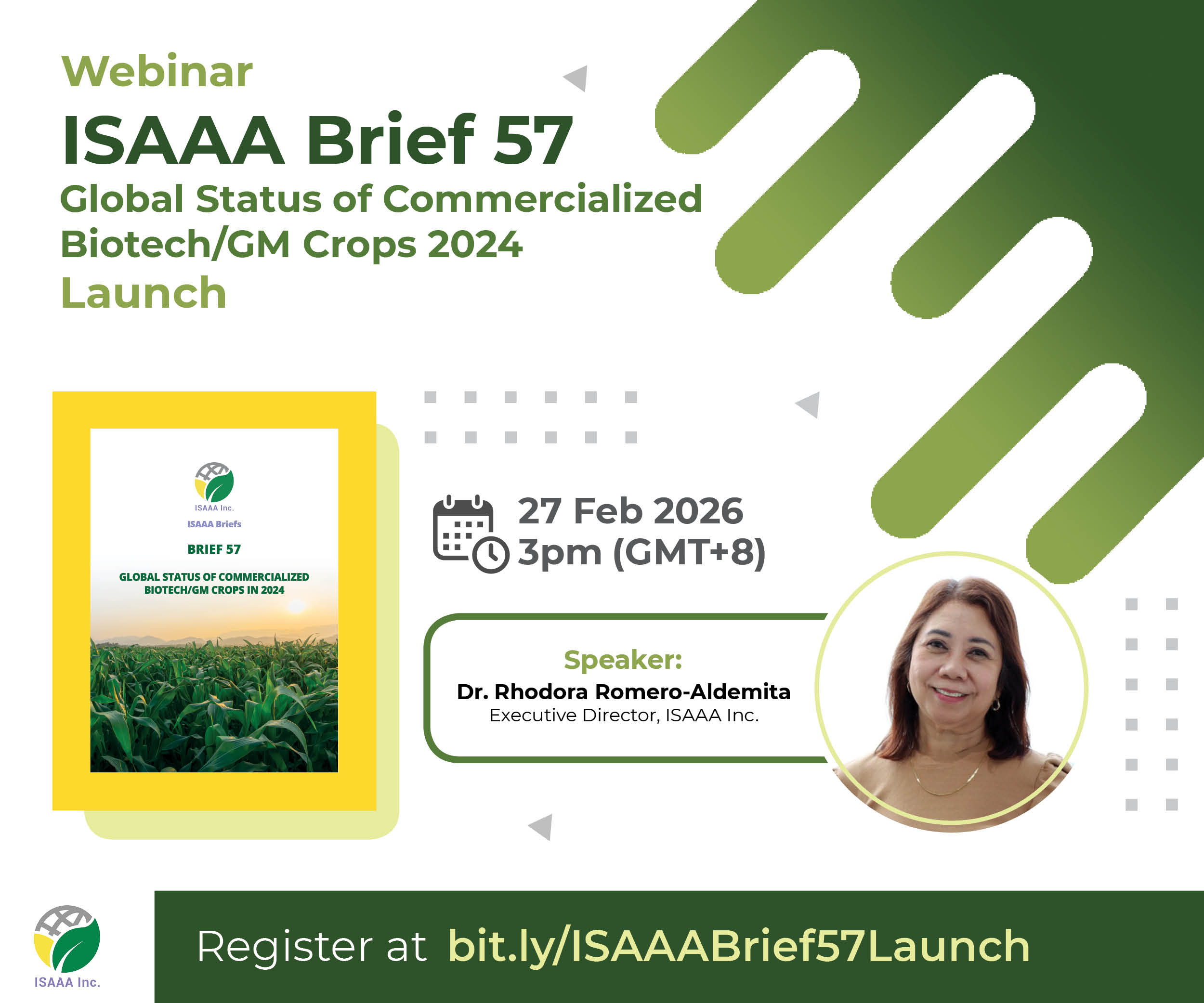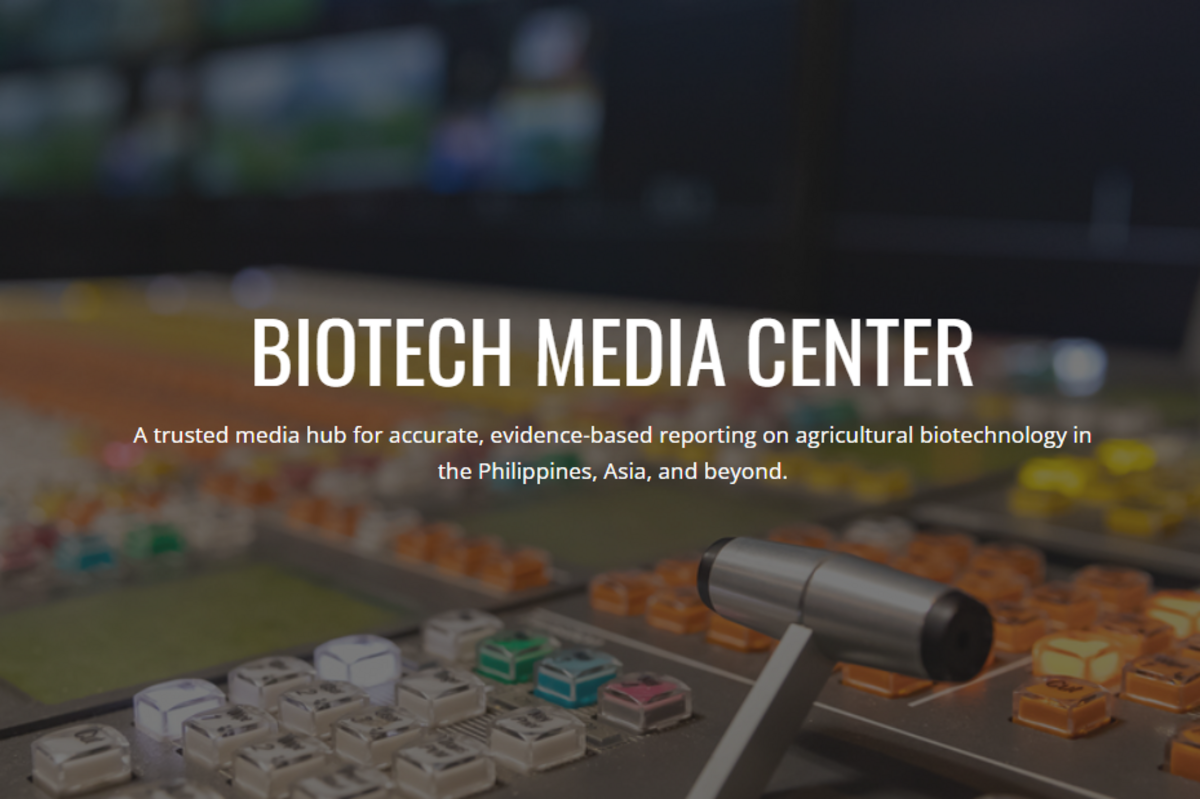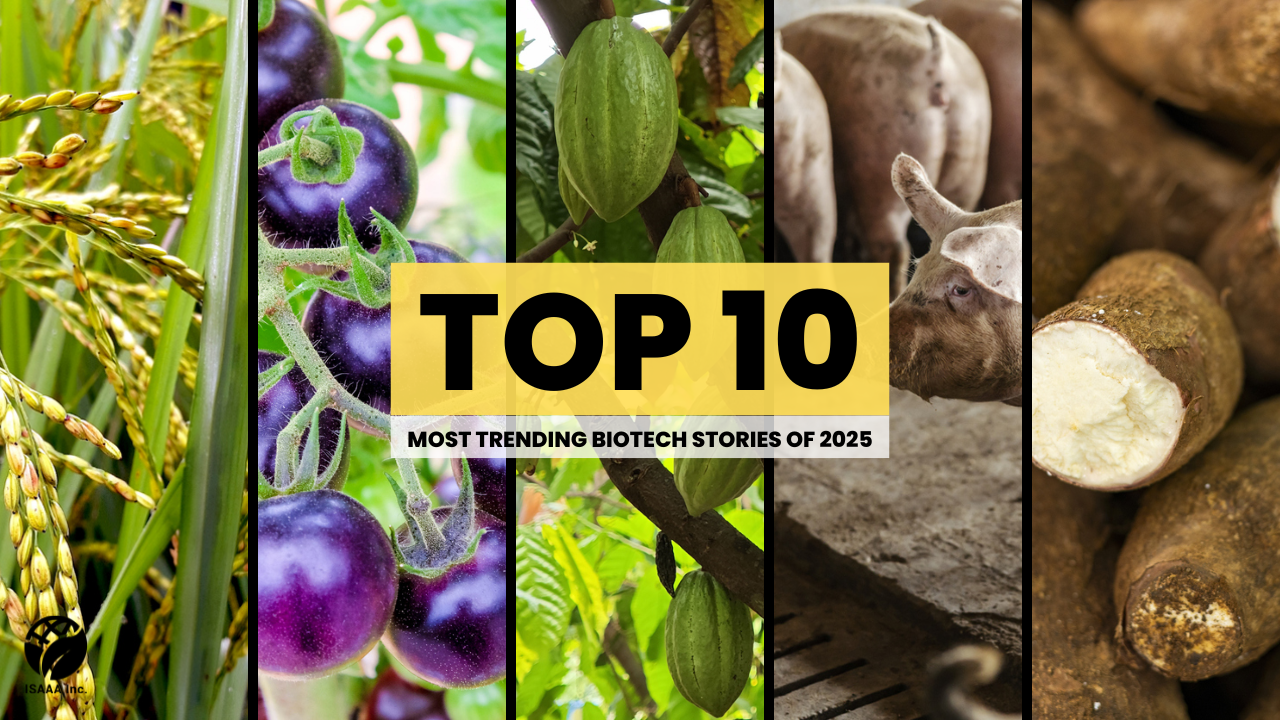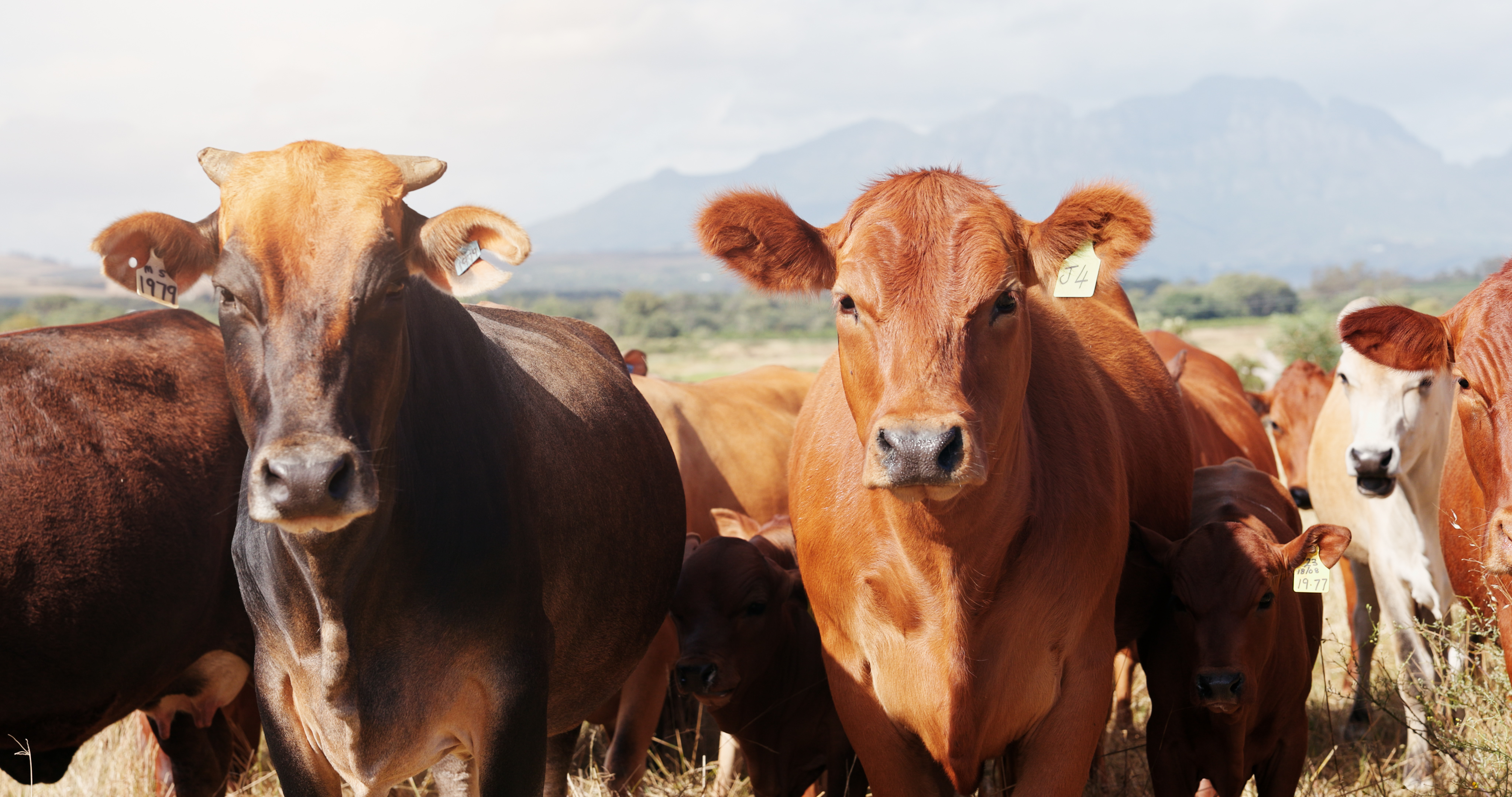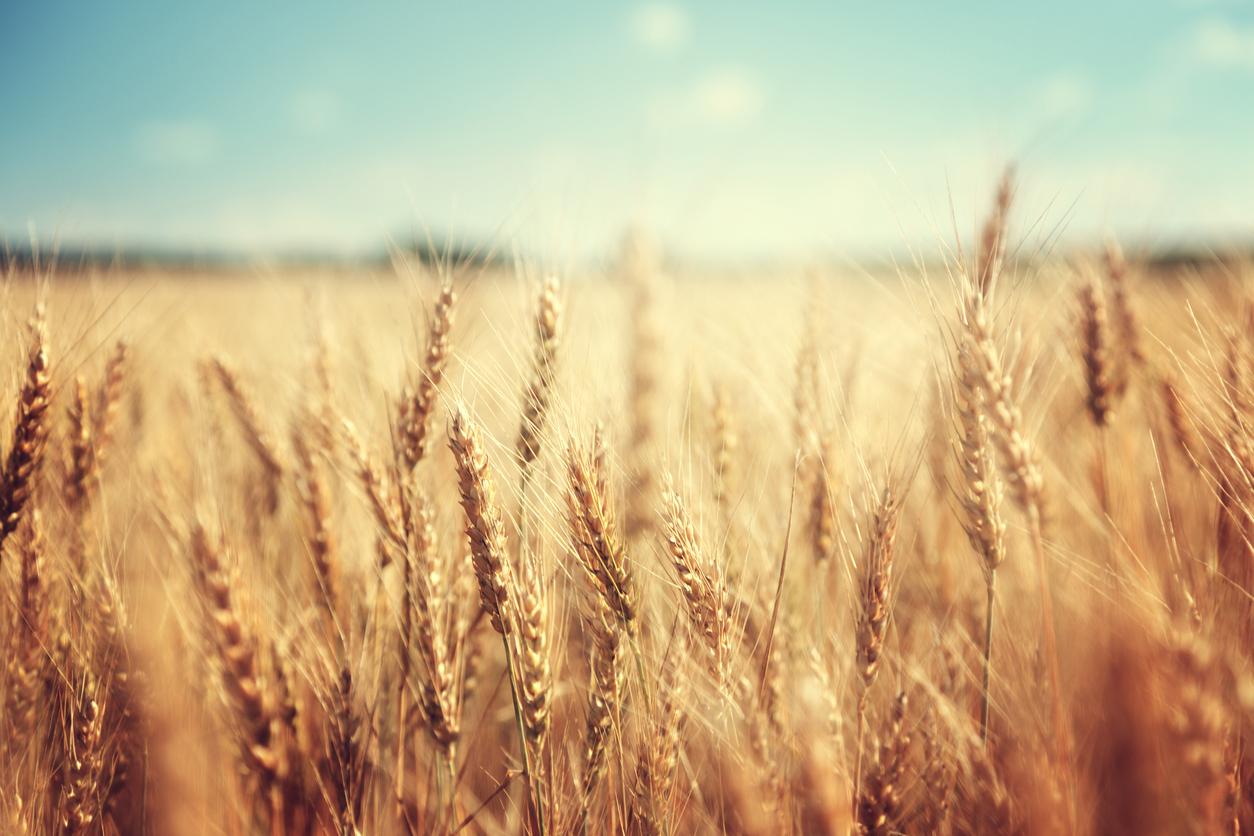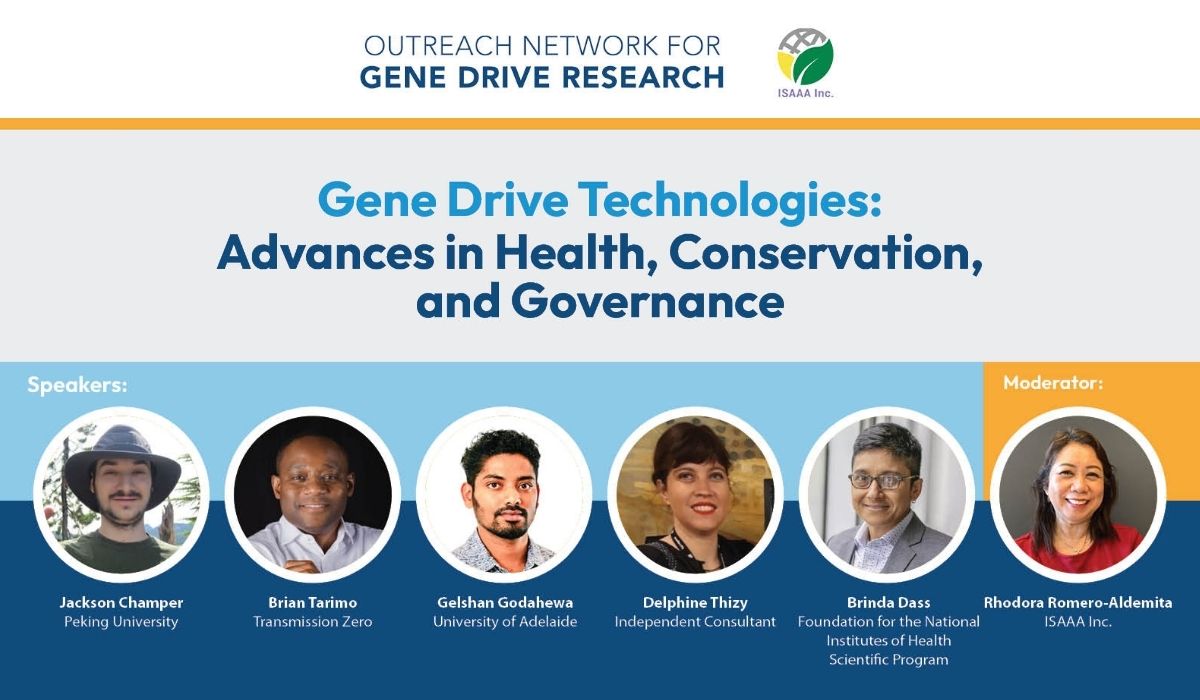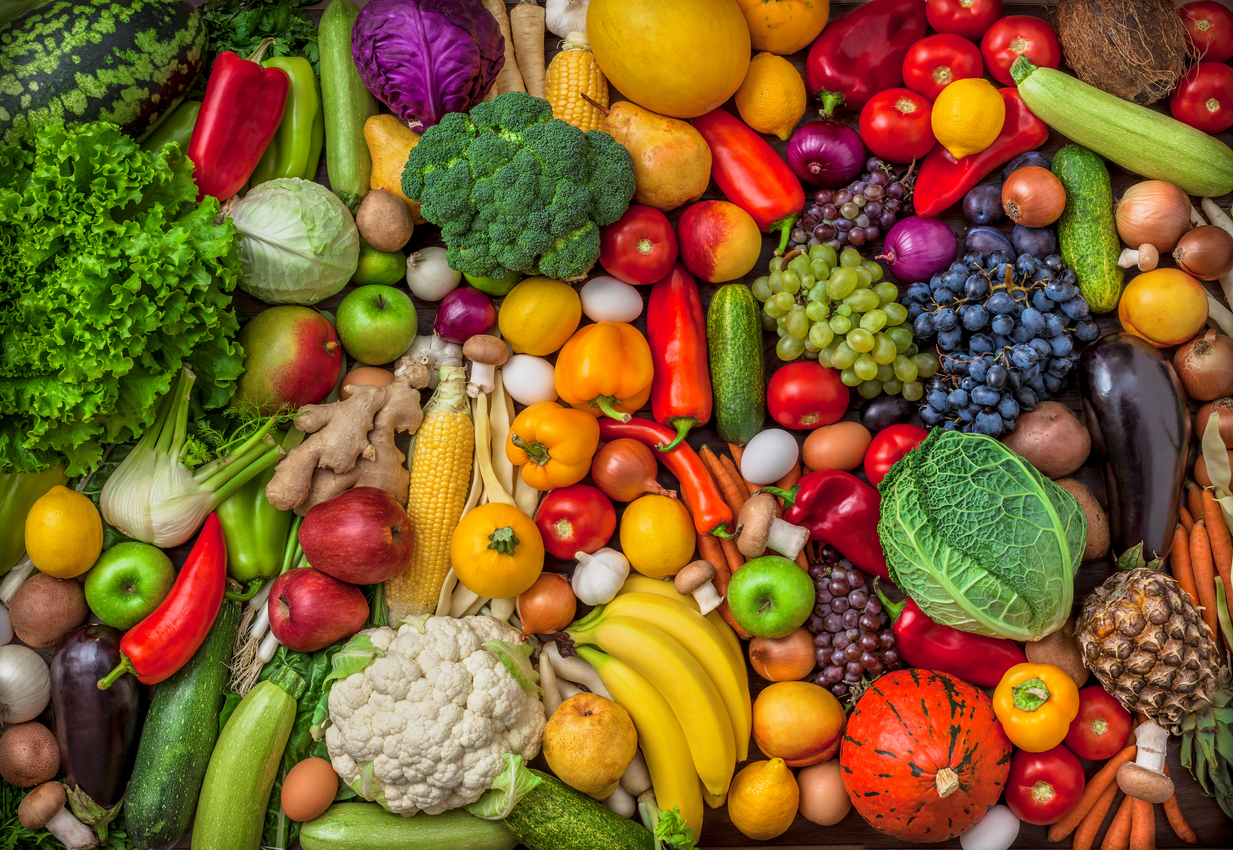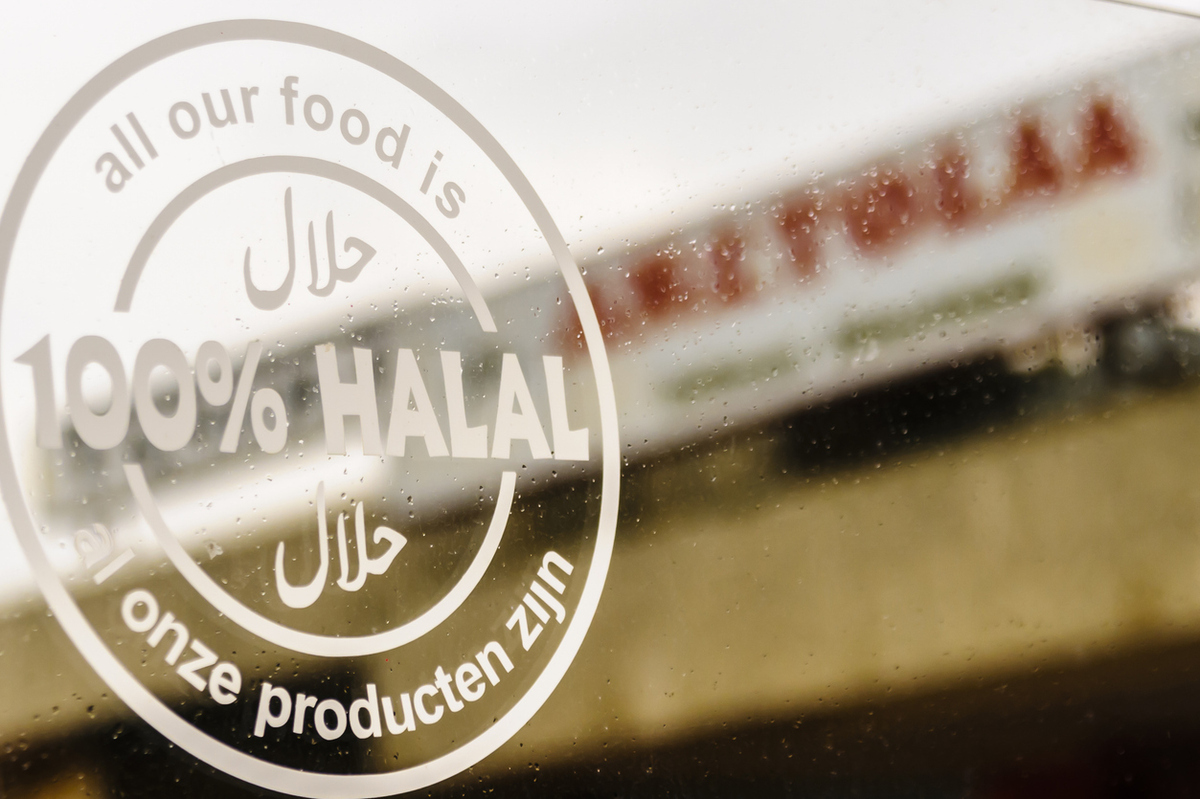Emerging Biotechnological Solutions for Plastic Waste Management
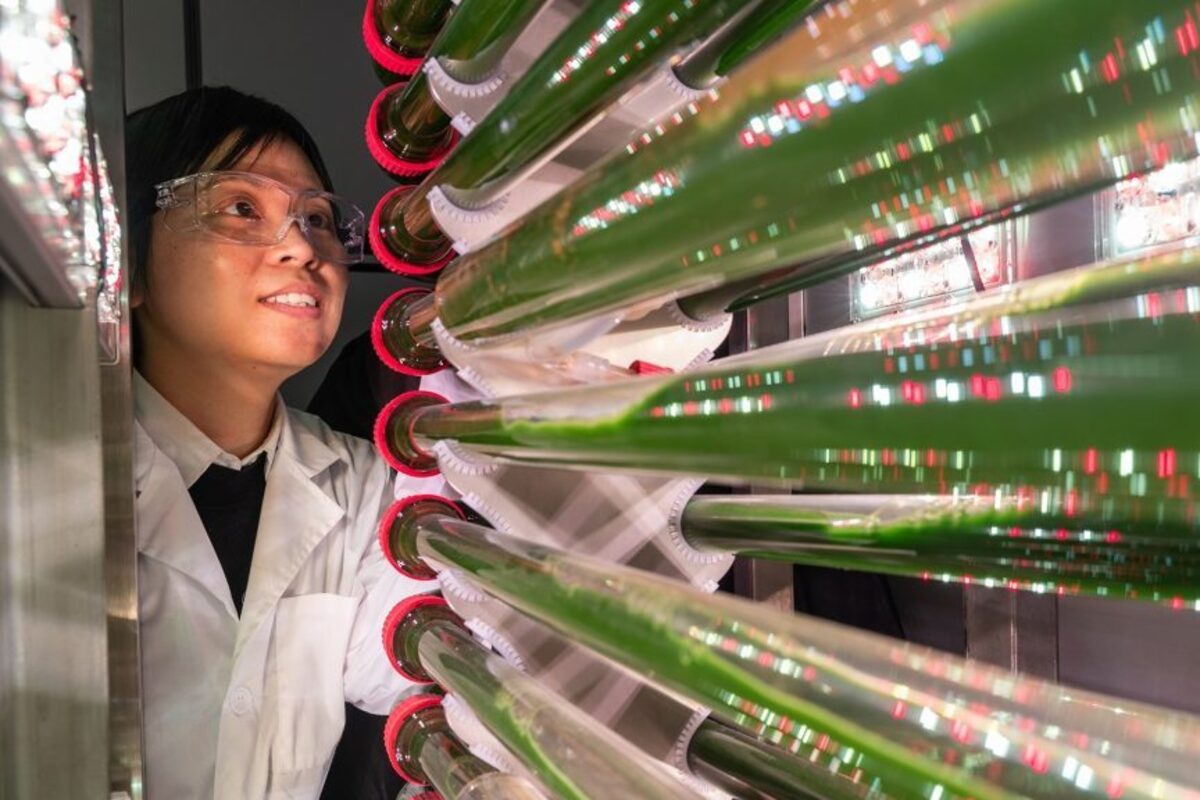
Every year, 19-23 million tonnes of plastic waste leak into aquatic ecosystems, including lakes, rivers, and seas. According to the World Economic Forum, our oceans could weigh more from plastic than from fish by 2050 if the production of plastic remains uncontrolled. Plastic waste is a global problem. Traditional plastic waste management has been insufficient to tackle the scale of the crisis. With plastic pollution continuing to rise at an alarming rate, it’s clear that innovative solutions are urgently needed.
Blog Archive
ISAAA to Launch 2024 Report on Global GM Crop Approvals and Adoption
ISAAA, Inc. and DA Biotech Program Launch the Biotech Media Center
Most Trending Agri-biotech News in 2025
IWRAAAAB 2025 Bridges Science and Policy for Animal Biotechnology
Saving Every Bite: How Biotech Crops Are Fighting Global Food Waste
Can Genetically Modified Foods be Considered Halal?
Science Speaks is ISAAA Inc.'s official blog. Weekly blog articles, authored by ISAAA writers, partners, and invited contributors, aim to help share, disseminate, and promote scientific knowledge and its vital role in achieving global agricultural sustainability and development. Your support to Science Speaks will help us achieve this goal. You can help us by donating as little as $10.


